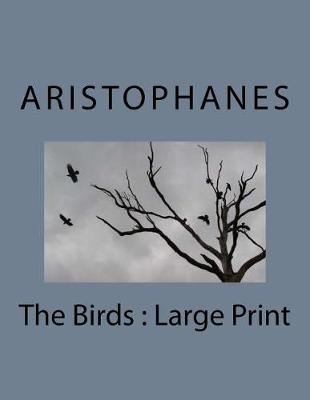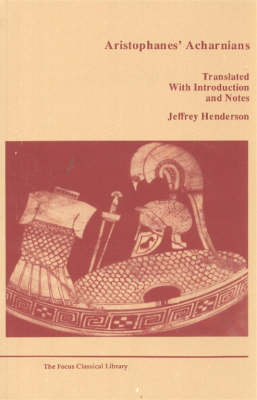Focus Classical Library
6 total works
This new translation of the play Clouds examines the two versions of the play, the history of the text, an analysis of Right and Wrong, the purpose of the chorus, and explanations of certain previously unexamined sexualjokes referred to in the play. Dover also includes notes on metrical analysis, a full commentary, and indexes.
This comprehensive edition of "Birds" aims to enable the reader, including the less-advanced student of Greek, to understand, interpret and enjoy the play. It is a play generally recognized as one of Aristophanes's masterpieces - both for its imaginative plot and for the charm and originality of its lyrics. The commentary gives help with the translation to cater for the less-advanced student of Greek, and also with interpretation and the lyric metres, as well as fully discussing the staging. It uses the resources of modern ornithology to elucidate Aristophanes's reference to birds. The introduction discusses the nature of the play: its historical and mythological background; the history of the text, including the contributions of ancient scholars recorded in the scholia, which are exceptionally important in this play; and also more recent scholarship.
Aristophanes' Lysistrata was last edited in 1928, and the last commentary was in 1927; the only previous edition in English appeared in 1911. The present edition brings the play up to date in terms of the advances made in Aristophanic scholarship in the past sixty years. In particular, it is the first to report all the manuscripts, papyri, and testimonial sources of the text, offering a new account of its history and a detailed review of the transmission of the Aristophanic corpus as a whole.
Among extant Greek comedies, the "Frogs" is unique for the light it throws on Classical Greek attitudes to tragedy and to literature in general. It merits a much more extensive commentary than it has so far received, and the establishment of the text itself has rested for over a century on collations which were inadequate and inaccurate. At the same time, its most problematic passages have been the subject, in recent years, of more scholarly articles than those of any other Greek play. In this introduction, edition, and commentary, Sir Kenneth Dover presents the relevant data, arguments, and considerations as fully as can reasonably be done in one volume. The book should be of interest to scholars and students of Classical (Greek) literature.


